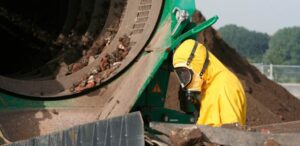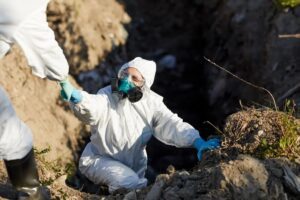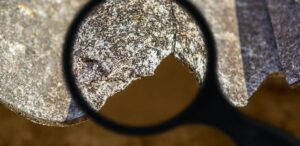What does an Asbestos Surveyor do?
Asbestos, a naturally occurring mineral, was once widely used in construction due to its heat resistance, strength, and insulating properties. However, it has been found to pose significant health risks when disturbed and inhaled over time. This is where the role of an asbestos surveyor comes into play. But what does an asbestos surveyor do? In this blog post, we delve into the world of asbestos surveys and the crucial role that these professionals play.
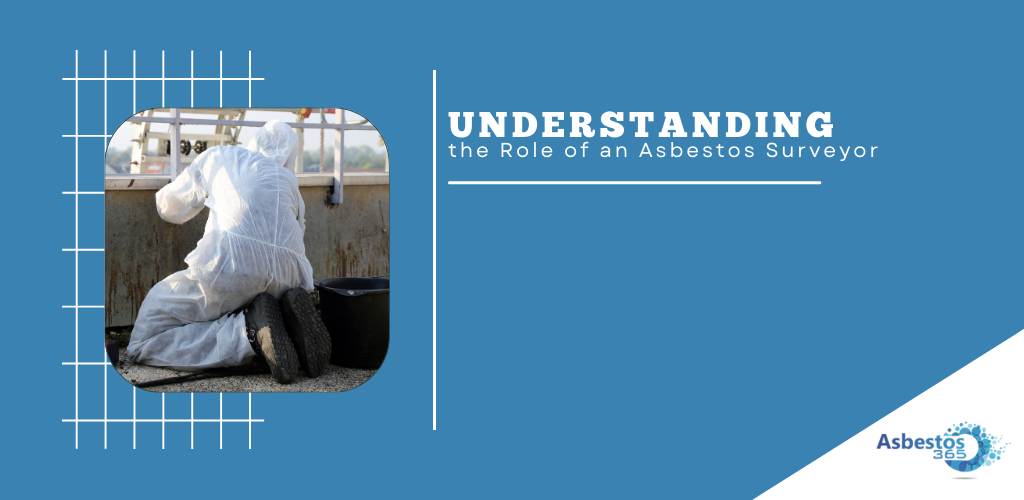
Understanding the Role of an Asbestos Surveyor
An asbestos surveyor is a trained professional responsible for identifying materials containing asbestos in buildings. Their primary task involves conducting comprehensive asbestos surveys to pinpoint any potential risks associated with asbestos-containing materials (ACMs). The aim is to prevent exposure to harmful asbestos fibres that can lead to severe health complications such as lung cancer and mesothelioma.
The surveyor’s role doesn’t end with identification; they also provide recommendations on managing or removing these materials safely. They work closely with property owners, construction companies, and health and safety bodies to ensure compliance with regulations concerning asbestos management.
You might also find this article useful? ‘Will a surveyor look for asbestos?’
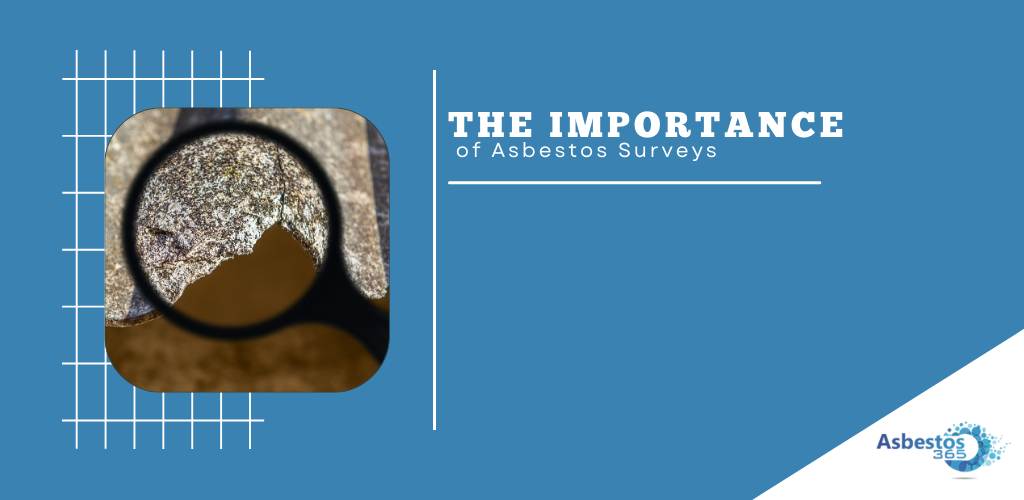

The Importance of Asbestos Surveys
Asbestos surveys are vital for several reasons. First, they help protect individuals from potential exposure to harmful asbestos fibres. This is particularly important in older buildings where ACMs may have been used extensively.
Secondly, they are a legal requirement under the Control of Asbestos Regulations 2012 for all non-domestic buildings constructed before 2000 in the UK. Failure to comply can result in hefty fines or even imprisonment.
Lastly, they provide crucial information needed for an effective asbestos management plan. This includes details about the location, condition, type and extent of any ACMs present.
Types of Asbestos Surveys
There are two main types of asbestos surveys: Management Surveys and Refurbishment and Demolition Surveys.
1. Management Surveys: This is the standard survey type intended to manage ACMs during the normal occupation and use of premises. The surveyor will identify, as far as reasonably practicable, the presence and extent of any suspect ACMs in the building which could be damaged or disturbed during normal occupancy.
2. Refurbishment and Demolition Surveys: This type of survey is needed before any refurbishment or demolition work is carried out. It is used to locate and describe, as far as reasonably practicable, all ACMs in the area where the refurbishment work will take place or in the whole building if demolition is planned.
The Asbestos Survey Process
An asbestos survey typically involves several steps:
1. Planning: The surveyor first plans out the survey, identifying any potential areas where asbestos may be present.
2. Fieldwork: The surveyor then visits the site to collect samples from suspected ACMs. This process involves carefully removing small pieces of material for analysis without releasing asbestos fibres into the air.
3. Analysis: The collected samples are sent to a laboratory for testing to confirm whether they contain asbestos.
4. Reporting: Once analysis is complete, the surveyor prepares a detailed report outlining their findings, including an asbestos register that lists all identified ACMs, their condition and recommended actions.
Conclusion
In conclusion, an asbestos surveyor plays a critical role in ensuring our buildings are safe from harmful asbestos exposure. Through comprehensive asbestos surveys, these professionals help protect our health while ensuring compliance with legal requirements for managing ACMs.
If you own or manage a building constructed before 2000, it’s essential to engage a professional asbestos surveyor’s services for regular surveys and advice on managing any identified risks effectively. Remember that dealing with asbestos isn’t just about compliance; it’s about safeguarding people’s health.
FAQS
An asbestos surveyor is a trained professional responsible for identifying, assessing, and documenting the presence of asbestos-containing materials (ACMs) within buildings and structures. Given the potential health hazards associated with asbestos, these surveyors play a critical role in ensuring buildings are safe for occupancy and comply with UK regulations regarding asbestos management.
In the UK, there are primarily two main types of asbestos surveys:
Management Asbestos Survey: This is a standard survey designed to locate the presence and extent of any ACMs in a building, which might be disturbed or damaged during normal occupancy.
Refurbishment and Demolition Asbestos Survey: This is required before any refurbishment or demolition work takes place. It’s more extensive and is used to locate and describe all ACMs in the area where the refurbishment work will take place or in the whole building if demolition is planned.
Yes, under the Control of Asbestos Regulations 2012, it’s mandatory for duty holders of non-domestic buildings (e.g., commercial or public buildings) to manage the risk from asbestos. This typically involves having an up-to-date asbestos register, which is usually derived from an asbestos survey. If there’s a reasonable suspicion that ACMs are present or if the building was constructed before 2000, an asbestos survey is usually necessary.
An initial asbestos survey should be done if there’s suspicion of ACMs or if the building’s history dictates it. After the initial survey, regular reviews of the asbestos register and management plans should be conducted. However, a new survey might be necessary if there’s significant damage to the building, if major refurbishment is planned, or if there’s reason to believe the original survey might no longer be valid.
It’s strongly advised against attempting to remove asbestos-containing materials without professional assistance. In the UK, certain types of asbestos removal work must be carried out by licensed asbestos removal contractors. Even if the work doesn’t require a licensed contractor, it’s crucial to follow safe work procedures and guidelines. Improper handling can release asbestos fibres into the air, posing significant health risks to you and others. Always consult with professionals when dealing with asbestos removal.




